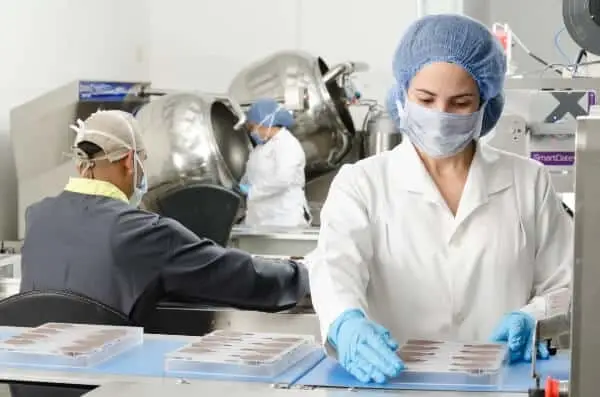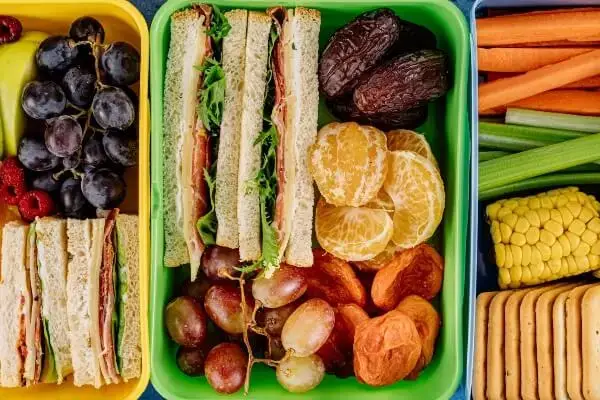What is The Food Safety Act 1990?
Unsplash Licence – Walter Otto
We often take for granted that our food is safe to eat. However, various pieces of legislation dictate food standards and practices to protect us from harmful practices.
One of the most crucial regulations outlining the legal foundations of food safety in the UK is the Food Safety Act 1990. It applies to all food businesses operating in the country and dictates the necessary measures they need to hit to protect the public.
Why The Food Safety Act is Vital
The Act was introduced to maintain food safety in the UK and ultimately, avoid false advertising and harming customers. If not in place, businesses could mislead people with their advertising, labelling and packaging and use dangerous practices and ingredients to create products that could seriously impact public health.
Its three main points aims are to
- Prevent food handling practices that could harm consumers
- Maintain high food standards and quality
- Prevent misinformation in labelling and advertising
What Does the Act Cover?
The Food Safety Act has a range of clauses covering food standards, consumer protections, food information, offences, ministers’ powers and much more. It regulates selling and purchasing to sell food, supplying products, transporting, importing and exporting goods. It also monitors the preparation and presentation of food, including packaging, labelling and advertising. In other words, it manages almost every aspect of the UK food industry.
However, the Act does not explicitly govern food hygiene, although the UK legislation that does regulate hygiene is built upon the powers outlined in the 1990 Act.
What Obligations Does it Set Out?
As businesses are the Act’s primary target and subject, it sets our various obligations for them to adhere to. These obligations fall into three distinct categories: preventing harm, upholding standards and providing clear messaging. The central regulations rule that any company working with food must:
- Prevent people from treating food in a way that could cause harm to consumers, including adding or removing products. This measure covers the entire production and handling process
- Maintain the nature, standards and quality of the food served to customers
- Prevent false labelling, presentation or advertising of food
How Does The Food Safety Act Affect Food Importers?
As an island, the UK relies on imports to supply much of its food. Foreign businesses produce these imported goods, and therefore, we risk differing international food standards affecting us; other governments may not regulate practices to the same extent as ours.
When it was introduced, the Food Safety Act worked with EU regulations to protect British citizens. In the post-Brexit world, restrictions on imports of meat, fish, dairy and animal products are in force. If you are bringing in food from outside the EU, Switzerland or Liechtenstein, there are also restrictions on fruit, vegetables and seeds. UK authorities have the power to check imports and ensure they meet the equivalent standards of British produce.
Other UK Food Legislation
The UK government introduced two other crucial pieces of UK legislation in the 1990s covering food and public health.
The Food Safety Order 1991
This order monitors and regulates food in Northern Ireland. It outlines the same regulations as the Food Safety Act 1990 and determines Northern Ireland’s role in the relationship between the UK and EU regarding food safety.
The Food Standards Act 1999
The Food Standards Act establishes the UK Food Standards Agency to protect public health surrounding food. The agency can intervene throughout the food production supply chain to ensure that appropriate food standards are met.
Learn How To Handle Food Safely Online
Understanding the various facets of food safety is vital for fulfilling your Food Safety Act obligations. At Caredemy, we offer CPD-accredited online food hygiene courses, starting from just £5, to provide all the necessary specialist knowledge. Our collection includes options written by Environmental Health Officers that explain your legal responsibilities. You can take them individually or in groups, allowing you to train entire teams at once.
To discover how you can upgrade your food hygiene with expert online teaching, contact our friendly team today. We can recommend the best courses for your needs and help you sign up online.
FAQ
What is the UK Food Safety Act of 1990?
The 1990 Food Safety Act is a piece of UK legislation that regulates food businesses and protects consumers from dangerous practices.
Why was the Food Safety Act 1990 passed?
The primary purpose of the Food Safety Act is to manage UK food standards and practices to prevent food companies from harming or misleading consumers.
What is the ideal temperature to store food?
Any high-risk foods should be stored in a refrigerator set to below 5oC to slow the growth of bacteria and keep them fresh. These high-risk products include any food with a use-by date, cooked meals and other ready-to-eat dishes like desserts.
Do I need to train food handling staff in food hygiene?
Any food business staff need food safety training. Typically, team members should have a level 2 food hygiene qualification or an equivalent certificate.
Can local authorities close food businesses that don’t meet hygiene standards?
Yes. If the local health authority finds that your company displays extreme health hazards, they can prohibit your use of premises, practices and equipment.
Do I need a licence to open a food business?
You do not need a licence to open a food business, but you do need to register your enterprise. This registration is free.
How can I apply for a liquor licence?
To apply for a Premises Licence that will permit the sale of alcohol in your business, you need to fill in an application form, send it to your local council and pay the application fee. The fees are anywhere between £100 to £1,905, depending on your needs.
Where can I find information about allergens for my catering business?
The best source of information on UK food standards and allergens is the Food Standards Agency.
{ “@context”: “https://schema.org”, “@type”: “Article”, “mainEntityOfPage”: { “@type”: “WebPage”, “@id”: “https://caredemy.co.uk/food-safety-act/” }, “headline”: “What is The Food Safety Act 1990?”, “description”: “One of the most crucial regulations outlining the legal foundations of food safety in the UK is the Food Safety Act 1990. It applies to all food businesses operating in the country and dictates the necessary measures they need to hit to protect the public.”, “image”: “https://caredemy.co.uk/wp-content/uploads/2023/03/Food-safety-Unsplash-Licence-Walter-Otto.webp”, “author”: { “@type”: “Organization”, “name”: “Caredemy”, “url”: “https://caredemy.co.uk/” }, “publisher”: { “@type”: “Organization”, “name”: “Caredemy”, “logo”: { “@type”: “ImageObject”, “url”: “https://caredemy.co.uk/wp-content/uploads/2022/11/cropped-cropped-cropped-cropped-cropped-Caredemy_multiple_logosb-e1611314968243-1-4.png” } }, “datePublished”: “2023-03-10”, “dateModified”: “2023-03-10” } { “@context”: “https://schema.org”, “@type”: “FAQPage”, “mainEntity”: [{ “@type”: “Question”, “name”: “What is the UK Food Safety Act of 1990?”, “acceptedAnswer”: { “@type”: “Answer”, “text”: “The 1990 Food Safety Act is a piece of UK legislation that regulates food businesses and protects consumers from dangerous practices.” } },{ “@type”: “Question”, “name”: “Why was the Food Safety Act 1990 passed?”, “acceptedAnswer”: { “@type”: “Answer”, “text”: “The primary purpose of the Food Safety Act is to manage UK food standards and practices to prevent food companies from harming or misleading consumers.” } },{ “@type”: “Question”, “name”: “What is the ideal temperature to store food?”, “acceptedAnswer”: { “@type”: “Answer”, “text”: “Any high-risk foods should be stored in a refrigerator set to below 5oC to slow the growth of bacteria and keep them fresh. These high-risk products include any food with a use-by date, cooked meals and other ready-to-eat dishes like desserts.” } },{ “@type”: “Question”, “name”: “Do I need to train food handling staff in food hygiene?”, “acceptedAnswer”: { “@type”: “Answer”, “text”: “Any food business staff need food safety training. Typically, team members should have a level 2 food hygiene qualification or an equivalent certificate.” } },{ “@type”: “Question”, “name”: “Can local authorities close food businesses that don’t meet hygiene standards?”, “acceptedAnswer”: { “@type”: “Answer”, “text”: “Yes. If the local health authority finds that your company displays extreme health hazards, they can prohibit your use of premises, practices and equipment.” } },{ “@type”: “Question”, “name”: “Do I need a licence to open a food business?”, “acceptedAnswer”: { “@type”: “Answer”, “text”: “You do not need a licence to open a food business, but you do need to register your enterprise. This registration is free.” } },{ “@type”: “Question”, “name”: “How can I apply for a liquor licence?”, “acceptedAnswer”: { “@type”: “Answer”, “text”: “To apply for a Premises Licence that will permit the sale of alcohol in your business, you need to fill in an application form, send it to your local council and pay the application fee. The fees are anywhere between £100 to £1,905, depending on your needs.” } },{ “@type”: “Question”, “name”: “Where can I find information about allergens for my catering business?”, “acceptedAnswer”: { “@type”: “Answer”, “text”: “The best source of information on UK food standards and allergens is the Food Standards Agency.” } }] }



